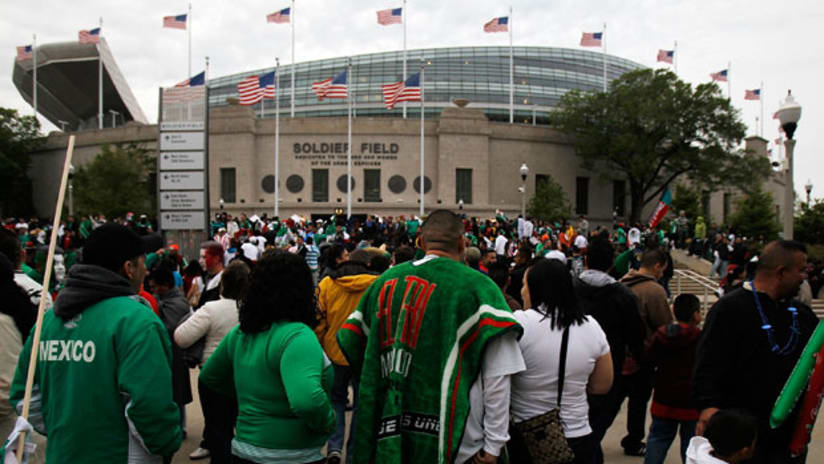NEW YORK – In theory, cities around the United States would relish the chance to host a World Cup match. Reality, however, includes massive amounts of paperwork and money issues. It has a way of stopping the ball before it starts rolling.
When US Soccer officials submitted their bid book to host the 2018 or 2022 World Cup to FIFA representatives, they included 18 potential host cities. Chicago, home of USSF headquarters and one of America's best soccer towns, was a surprising omission.
According to David Downs, executive director of the United States Bid Committee, they would have liked to include the Windy City but Chicago was "still smarting from the Olympic decision," which saw it lose out on the 2016 Games.
Getting involved in another bid – a labor-intensive process that involved evaluating a 60-page document as well as assessing the financial and social impact on the city – "didn't look like the smartest thing to do."
"They, regrettably for me I would say, weren't willing to do the documentation that we needed to include them, so we had no choice but to leave them out," Downs told MLSsoccer.com from his Midtown Manhattan office last week. "I think in a vacuum had they signed the contract, I think they probably would have made the cut."
SUPPORT:Help bring the World Cup back to the USA
Downs also addressed concerns that some cities backed out because the economics didn't make sense. Stefan Szymanski and Simon Kuper noted in their book, Soccernomics, that tournaments don't provide the financial reward their organizers claim.
In July, University of Maryland economics professor Dennis Coates took that a step further, taking aim at the 2018/2022 effort with the release of his paper, World Cup Economics: What Americans Need to Know About a US World Cup Bid.
In the publication, he argued that hosting the tournament would cost the US $9 billion, a much different figure than the $5 billion benefit predicted by a study conducted by AECOM on behalf of the USSF.
While Downs admits local governments will have to spend between $5 million and $15 million to host each game, the benefit to each community will be roughly $80 million.
The executive director says the committee presented the AECOM study, which used three metropolitan areas and included a lot of hypotheticals, to the 27 cities in final consideration with the caveat that it was a directional tool only.
Local governments were welcome to conduct their own investigations using specific details about their area. Downs reports that none of the nearly 30 towns backed out due specifically due to economic reasons.
There's also another money-related issue: The US is financially the best-prepared host. Even if Coates' theories are correct, Downs believes America still makes the most sense.
"If your options are holding a country with limited ticket revenue that has to spend $4 to $5 billion constructing stadiums," he argued, "or holding it in a country with almost unlimited ticket revenue that doesn't have to spend a penny constructing stadiums, if the latter is irresponsible, what's the former?
"It just doesn't make sense that the most economically responsible way to hold the World Cup would lose tens of billions of dollars."


